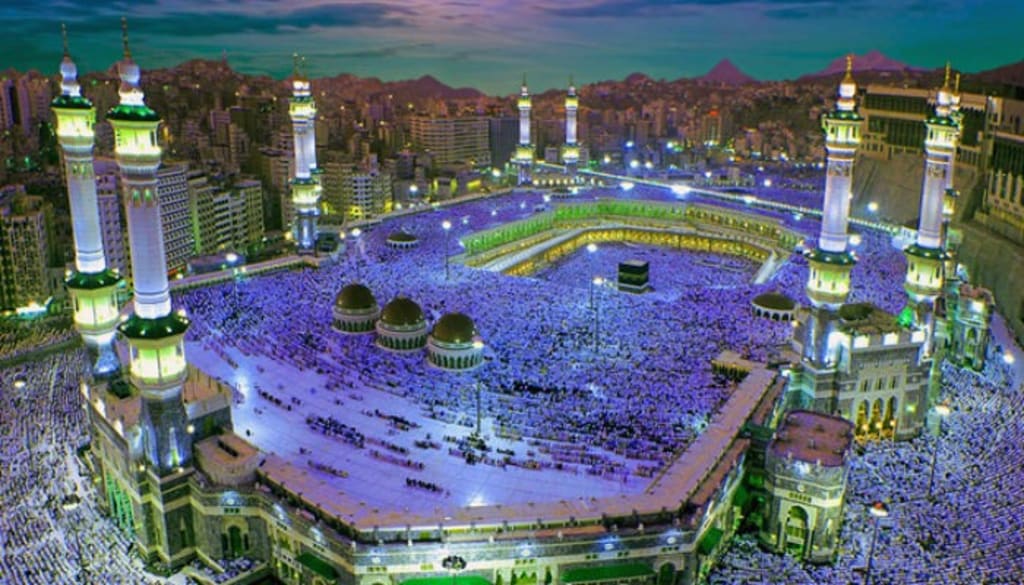The Five Pillars of Islam: An In-depth Exploration
What to know about Islam

Title: The Five Pillars of Islam: An In-depth Exploration
Islam, one of the world's major religions, is built upon a foundation of fundamental beliefs and practices known as the Five Pillars. These pillars serve as the cornerstone of Muslim faith and devotion, guiding adherents in their spiritual journey towards submission to the will of Allah. In this comprehensive exploration, we delve into each of these pillars, elucidating their significance and the profound impact they have on the lives of Muslims worldwide.
The Shahada: Professing Faith in One God
At the heart of Islamic belief lies the Shahada, or the profession of faith. This simple yet profound declaration encapsulates the core tenet of Islam: the absolute belief in the oneness of God (Allah) and the prophethood of Muhammad. By affirming "There is no deity worthy of worship except Allah, and Muhammad is His messenger," individuals bear witness to their commitment to monotheism and acknowledge Muhammad as the final messenger sent to humanity. Uttering the Shahada marks a pivotal moment in a person's life, signifying their entry into the fold of Islam and their acceptance of its guiding principles.
Salah: The Ritual of Daily Prayer
Salah, the second pillar of Islam, underscores the importance of regular communication with the Divine through ritual prayer. Muslims are enjoined to perform five daily prayers, known as Salah, at prescribed times throughout the day. These prayers serve as a means of spiritual connection, grounding believers in their faith and reminding them of their ultimate purpose in life. Each Salah session, performed in a state of ritual purity, provides an opportunity for reflection, supplication, and gratitude. Whether alone or in a congregation, Salah cultivates a sense of discipline, mindfulness, and reverence in the hearts of worshippers.
Zakat: The Obligation of Almsgiving
Central to Islamic ethics is the principle of charity and social responsibility, embodied in the third pillar of Zakat. Muslims who are financially stable are required to give a portion of their wealth to those in need, thereby fostering economic equity and compassion within society. Zakat is not merely a recommended practice but a compulsory duty, emphasizing the importance of generosity and solidarity among believers. By sharing their wealth with the less fortunate, Muslims fulfill a sacred obligation and contribute to the welfare of their community, reinforcing the bonds of brotherhood and mutual support.
Sawm: Fasting During Ramadan
Ramadan, the ninth month of the Islamic lunar calendar, holds special significance for Muslims worldwide as a time of fasting, self-reflection, and spiritual renewal. The fourth pillar of Sawm enjoins believers to abstain from food, drink, and other physical indulgences from dawn until sunset throughout the month. Fasting during Ramadan is more than a mere act of self-denial; it is a profound spiritual journey marked by devotion, discipline, and devotion. By observing Sawm, Muslims seek to purify their souls, cultivate empathy for the less fortunate, and draw closer to Allah through acts of worship and self-restraint.
Hajj: The Pilgrimage to Mecca
The fifth and final pillar of Islam, Hajj, is a sacred pilgrimage to the holy city of Mecca in Saudi Arabia. Obligatory once in a lifetime for those who are physically and financially able, Hajj is a transformative experience that embodies the unity, diversity, and universality of the Muslim ummah (community). During the annual pilgrimage, millions of Muslims from around the globe converge upon Mecca to perform a series of rituals, including circumambulating the Kaaba, standing in prayer on the plains of Arafat, and participating in symbolic acts of devotion. Hajj serves as a powerful reminder of the equality of all believers before Allah, regardless of race, ethnicity, or social status, and reinforces the bonds of brotherhood and sisterhood that unite the global Muslim community.
Conclusion:
In conclusion, the Five Pillars of Islam constitute the foundational principles upon which the faith and practice of Islam are built. From the declaration of faith in the Shahada to the performance of daily prayers, the giving of charity, the observance of fasting during Ramadan, and the pilgrimage to Mecca, these pillars serve as guiding lights for Muslims on their journey of faith. By adhering to these pillars, believers seek to deepen their relationship with Allah, cultivate moral virtues, and fulfill their responsibilities as members of the global Muslim ummah.
About the Creator
Edwin Angatia
I'm a writer, editor, and proofreader. I'm proud to contribute my writing and proofreading skills as a member of the International Association of Professional Writers and Editors (IAPWE).





Comments
There are no comments for this story
Be the first to respond and start the conversation.